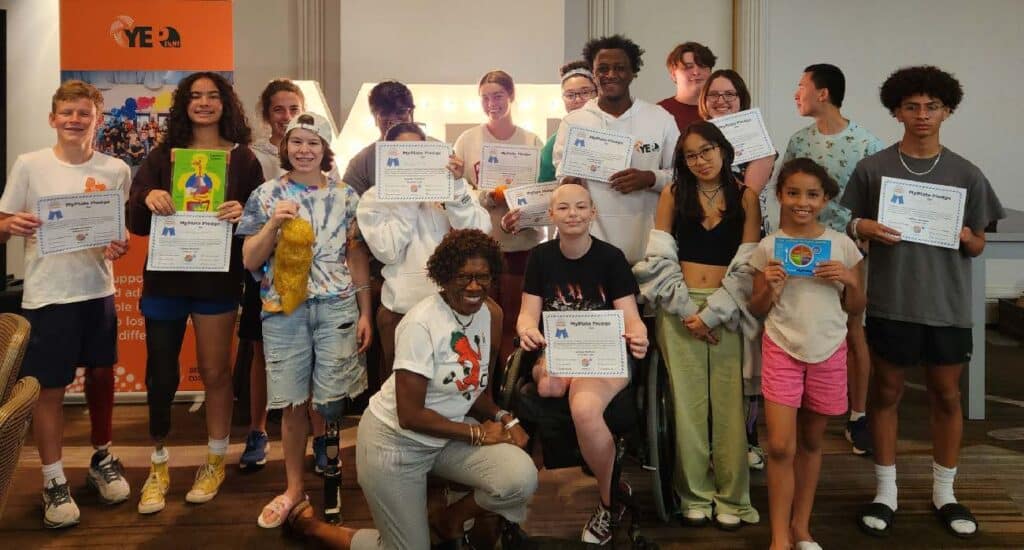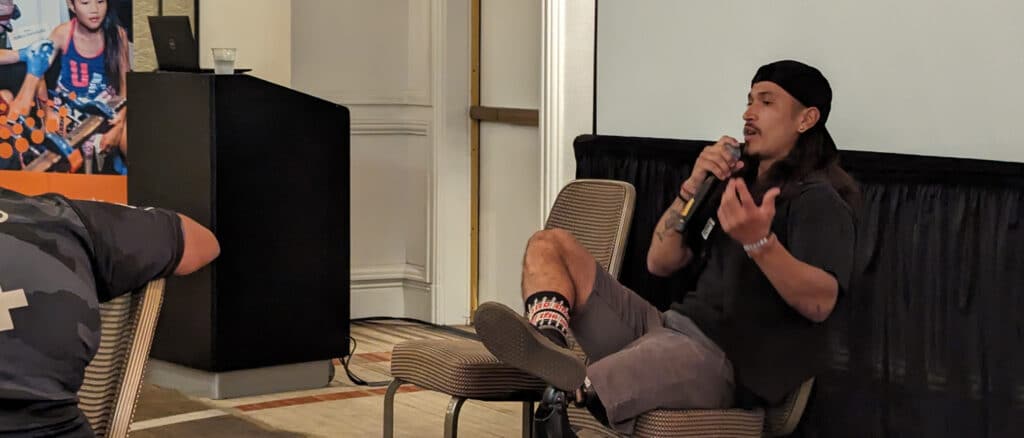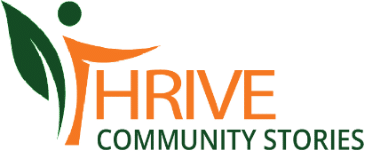Anyone Can Advocate, and Anyone Can Speak Up
By Divine Favour Akin, Youth Engagement Reporter

This is the second of a two-part Next Generation series on the power of advocacy. Part 1 appeared in the November-December 2023 issue of inMotion.
According to 11-year-old activist Callaway Lewis, advocacy not only encompasses big demonstrations but anything that changes people’s perspective on what it means to be a person who has limb loss and/or limb difference. Anyone can advocate, and anyone can speak up.
Sometimes, for Callaway, it means something subtle like playing, being active like her classmates or engaging in her favorite activity: rock climbing. People would be surprised when they would see Callaway rock climbing at the gym.
Also, she would have conversations with people about what it means to be abled as a disabled person. Advocacy was also an internal quest to strengthen the community by empowering people within the community. For example: inviting other amputees to join the available communities to empower them or provide experiences and resources. All of these day-to-day living acts were what advocacy meant to Callaway.
And yet, with all these opportunities, it sometimes feels intimidating to self-advocate. During the National Conference, a quadruple amputee spoke to me and my friends. She told us we were brave young people capable of so much and ready to defend others.
Still, when it came to speaking up for ourselves, we hesitated or avoided it, and in many ways it was true. As students, sometimes we are the only ones with limb differences in our school, so it’s not easy to request accommodations without feeling judged for it. However, requiring accommodation or more consideration does not make us weaker or inferior. It means we are different, so we get work done efficiently but differently.
As people with limb loss and limb difference, we embody advocacy in the simplest things, like pursuing our hobbies By Divine Favour Akin, Youth Engagement Reporter Courage Is Contagious and helping people understand that a disability does not translate to an inability. Over my time with the Amputee Coalition Youth Engagement Program, I have met incredible youths doing incredible things and pursuing their passions: youths with lower limb differences do karate, cheer, track and field, basketball and many other sports. I have also seen people with upper limb differences engage in different types of art, like playing the cello, drawing, knitting, and doing it better than people with two hands.
Things like that break the preexisting notions of disability. Better yet, it also helps people within the disabled community see themselves as more because, most times, it’s not a question of whether we can or can’t. It’s whether we have the necessary resources and environment to act. Each of us plays a unique role in strengthening the community. Progress is a collective effort and investment. As young people, we increasingly have more outlets for expression than 100 years ago. The progress we make today will not only be expressed now but for future generations.
And yet we are increasingly confronted with the idea that our voices and concerns don’t matter or are not powerful enough. But they do and they are.

As Malala Yousafzai said, “When the world is silent, even one voice becomes powerful.” So, while one youth may not seem enough, they can initiate a whole movement because courage is contagious, strength is contagious, and hope is contagious.
Never sell yourself short. Your voice speaks power because it expresses your experience, which no one can invalidate because it’s yours. Your voice is backed and strengthened by a whole community; you impact past, current and future generations. For a simple phrase to wrap things up, Callaway said, “Don’t let them say no!” Live your life and show up in a way that makes them understand the answer is yes. In other words, ensure people never leave with the same perception they come with about having a disability.

